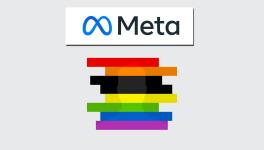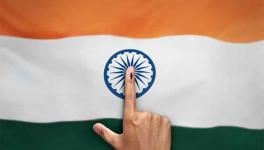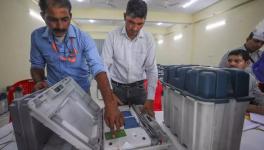Algorithm of Ad Advantage: Facebook ‘Charged BJP Less’ Than Rivals
In a huge and unfair advantage to the Narendra Modi-led Bharatiya Janata Party (BJP) government, Mark Zuckerberg’s Facebook promoted the party’s advertisements at 29% less price than the amount paid by its arch-rival Congress during 10 elections between February 2019 and November 2020 (22 months), allowing it to reach a wider audience than opposition parties.
Part three of a year-long investigation conducted by Kumar Sambhav of The Reporters’ Collective (TRC) and Nayantara Ranganathan of ad.watch, a research project that studies political ads on social media, and published by Al Jazeera has revealed that Facebook showed a BJP ad on average one million times but charged only Rs 41, 844 from the party, its candidates and affiliated organisations.
On the other hand, the report discovered that the social media giant charged the Congress, its candidates and affiliated organisations Rs 53,776 on average to show one ad for the same number of times.
ADVANTAGE BJP
During the three-month campaign for Assembly polls in Odisha, Arunachal Pradesh, Sikkim and Andhra Pradesh before the General Elections in 2019, the BJP and its candidates were charged Rs 61,584 on average for an ad with 1 million views compared to Rs 66,250 paid by the Congress. Facebook gave a similar unfair advantage to the BJP in the Haryana and Jharkhand elections later that year, the report stated.
In the 2020 Delhi elections campaign, the Aam Aadmi Party paid the highest amount of Rs 64,174 for one ad, followed by the Congress at Rs 39,909 and the BJP the least at Rs 35,596.
Similarly, in the 2020 Bihar elections, the BJP’s main regional ally Janata Dal (United) shelled out the highest amount of Rs 66,704 per million views, followed by the Congress at Rs 45,207 and the saffron party again the least at Rs 37,285, according to the investigation.
Only in one out of the 10 elections, the Congress got a better deal when it paid Rs 38,124 compared to the BJP’s Rs 43,482 in Maharashtra.
The first part of the investigation found that Facebook carried 718 surrogate political ads of Reliance Jio-funded New Emerging World of Journalism Limited promoting the BJP and denigrating its rivals costing Rs 52,00,000 that were viewed more than 290 million times in those 22 months.
The second part of the investigation discovered that, at least, 23 ghost and surrogate advertisers paid more than Rs 5.8 crore to Facebook to run 34,884 ads either to promote the BJP or criticise/lampoon the Opposition that garnered a staggering 1.31 billion views in the 22 months across 10 elections, including in Delhi, Odisha, Maharashtra, Bihar and Haryana.
Both the reports, written after an analysis of the 536,070 political advertisements published on Facebook and Instagram accessed through Facebook’s Ad Library Application Programming Interface (API) by TRC and ad.watch, were published on Al Jazeera.
The BJP and its affiliated organisations officially spent a whopping Rs 10-plus crore on 26,291 Facebook advertisements compared to around Rs 6 core spent by the Congress and its affiliates in the same period, the third part of the investigation revealed—but the saffron party had to pay around Rs 1 crore less than the Grand Old Party of India.
Facebook’s advantage provided to the BJP over its rivals grew bigger considering the ghost or surrogate advertisers promoting the party and criticising the Opposition. On average, Facebook charged a BJP promoter Rs 39,552 for one million views for an ad as against Rs 52,150 from the Congress, around 32% more.
FACEBOOK’S PRICE ALGORITHM
Facebook’s parent company Meta Platforms Inc charges varying prices for ads that are based on real-time auction of social media company’s newsfeed and space on its other platforms. Facebook’s opaque algorithm decides the price of an ad and the number of times it will appear. The price is decided on the value of the target audience and the relevance of the ad to them.
An analysis of the money spent on the ads and the number of views by TRC and ad.watch discovered that the BJP got a better deal from Facebook than its rivals in nine out of the 10 elections.
Facebook offered a similar advantage to then-US President Donald Trump over his challenger Joe Biden in the 2020 presidential election. A similar analysis of the API data accessed by the New York University Ad Observatory found that Trump’s campaign paid lower advertising rates.
“These findings show important disparities in political ad pricing that has serious consequences for the ability of different political parties and candidates to reach voters with their message,” Laura Edelson, lead researcher, Ad Observatory, who reviewed the methodology and findings of the investigation, said. Expressing concern at the findings, she said that Facebook should ensure a level playing field for political speech.
Meta refused to answer specific question on the wide disparity in prices it charged from different parties while providing advantage to the BJP. All it said in response to a list of detailed questions over email was it applies the company’s policies “uniformly without regard to anyone’s political positions or party affiliations. The decisions around integrity work or content escalations cannot and are not made unilaterally by just one person”.
NO RESPONSE FROM ECI
The Election Commission of India (ECI) bars ghost or surrogate advertisements that favour a political candidate in print and electronic media. Even a payment by a third party with no links to a candidate on such ads is considered as the contestant’s spending—including paid promotions camouflaged as news.
Strangely, the ECI exempts digital platforms, which have a wider reach than print and electronic media, from this ban. The ECI did not respond to TRC’s questions despite repeated reminders. “Any evidence of significant price distortion in campaign expenses is an appropriate subject for the ECI to investigate and warrants a serious conversation with Mr Nick Clegg [UK’s former deputy Prime Minister who now serves as the vice-president of Global Affairs and Communications at Meta] and other tech giants,” said Mishi Choudhary, technology lawyer and legal director at the Software Freedom Law Centre, New York. “A Model Code of Conduct is only worth anything if it’s enforced impartially irrespective of the ruling party in power,” she said.
SUPREME COURT’S CONCERNS
In July 2021, when Facebook India head Ajit Mohan challenged the summons issued by Delhi Legislative Assembly’s Peace and Harmony Committee, which was probing the February 2020 communal riots in the Capital, the Supreme Court observed in a stinging judgement: “Election and voting processes, the very foundation of a democratic government, stand threatened by social media manipulation.”
The committee was also looking into complaints that Facebook had been to foment hate before the riots. Considering the use of Facebook to influence the 2016 US presidential election, the court rejecting Facebook’s appeal seeking exemption from appearing before the committee. “This [social media manipulation] has given rise to significant debates about the increasing concentration of power in platforms like Facebook, more so as they are said to employ business models that are privacy-intrusive and attention soliciting,” it ruled.
Get the latest reports & analysis with people's perspective on Protests, movements & deep analytical videos, discussions of the current affairs in your Telegram app. Subscribe to NewsClick's Telegram channel & get Real-Time updates on stories, as they get published on our website.
























